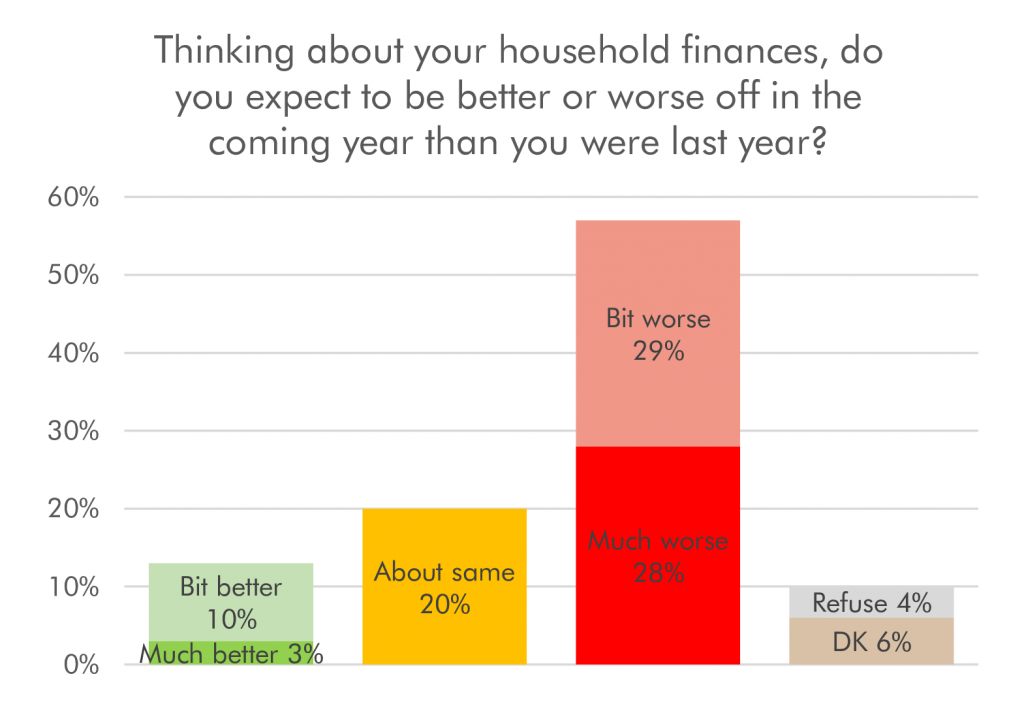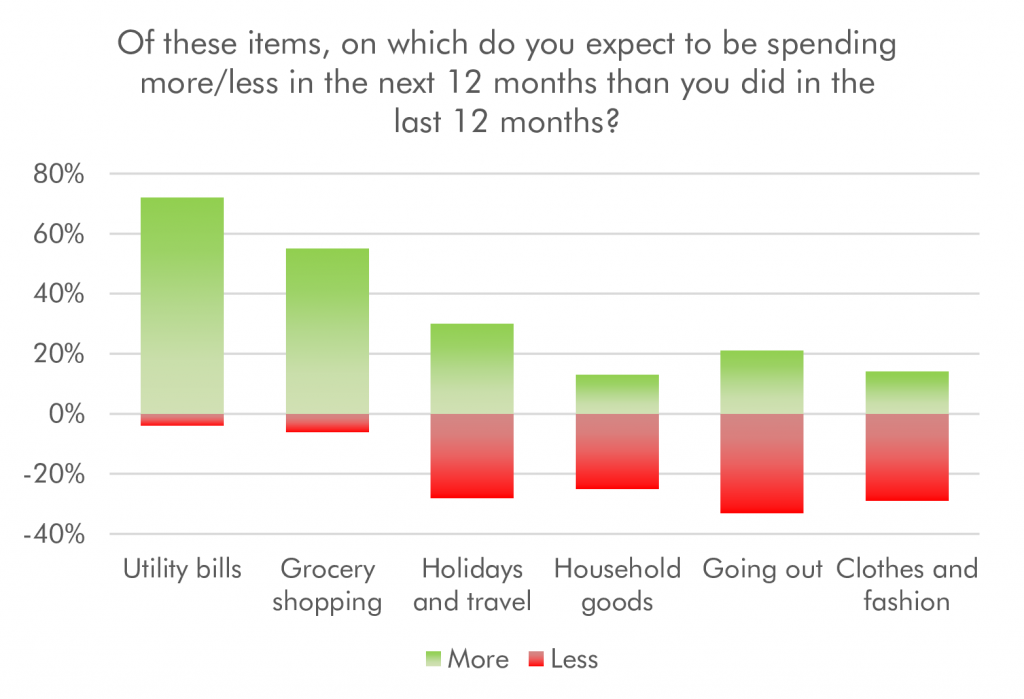As coronavirus restrictions ease, will the economic life of consumers snap back to normal? Electoral Calculus and pollster Find Out Now conducted an exclusive poll for The Property Chronicle to find out.
Our findings show that consumers expect their household finances to worsen in the next year and they also expect to be hurt by inflation on their non-discretionary spending. The outlook for discretionary spending does not look very positive, even for those sectors which might have expected a post-covid bounce.
The demographic breakdown of the economic pain is also bad news for the incumbent Conservative Government.
Let’s look at the findings in more detail.
We asked people to think about their household finances and whether they expected to be better or worse off in the coming year compared with last year. Overall, 57% of people thought that they would be worse off and only 13% thought they would be better off. There were 20% of people who thought they would be about the same and some 10% who didn’t give an answer.

The first chart shows that many more people are pessimistic rather than optimistic about their financial prospects. This pessimism could be because people think inflation and increased taxes will squeeze their budgets. These worries seem to outweigh the possible gains from the end to public health restrictions on economic activities such as entertainment and travel.
To find out more about this, we also asked people what sort of things they expected to be spending more or less on in the coming 12 months compared with the past 12 months. We gave a range of categories, which covered both discretionary sectors (such as travel, fashion and entertainment) and non-discretionary sectors (such as groceries and utilities).

The second chart shows the breakdown in responses across the sectors. The two sectors on which people expected to spend more were utilities (net 68% more over less) and groceries (net 49% more). The large increases in these non-discretionary categories probably reflect inflation worries, particularly the well-publicised increases in the market price of energy.
More surprisingly, people were not very confident that they would be spending more on holidays and travel. There was only a net 2% of people thinking they would spend more rather than less on this. The travel industry will be expecting a big bounce-back in travel as covid restrictions ease in the UK and abroad, but consumers are not so sure.
There is a similar story for the hospitality industry (such as restaurants, bars, cinemas). It’s rational to expect a resurgence in this sector as restrictions on social gatherings are removed. But consumers don’t agree yet, with a 12% margin expecting to spend less rather than more on this.
There’s not much good news for the household goods and fashion sectors either, where consumer confidence is also in net negative territory, by margins of 12% and 15% respectively.
Taken together, these data show consumers worried about inflation and not expecting to spend more on discretionary items.
That’s a relatively negative economic outlook, but it also has political implications. Incumbent political parties tend to do well when the economy does well and vice versa. With the bellwether local elections coming up in May, the Conservatives would be hoping for better economic news.
“Older voters, aged above 65, a total of 63% expect their finances to get worse and only 6% expect them to get better”
But the situation for the Conservatives might even be a bit worse than it appears at first. Let’s look deeper into the responses to the question about household finances. We saw that 57% of people had a negative outlook. But this is an average over all voters and the figure is different for different demographic groups. Among the youngest voters, those aged 18-24, the corresponding figure is much lower at 38%, showing that younger people are economically more optimistic than average. But for older voters, aged above 65, a total of 63% expect their finances to get worse and only 6% expect them to get better.
These voters are a core part of the Conservative party’s support. At the last general election, around 60% of voters aged over 65 voted Conservative. If this group feels economically hurt, and is less inclined to support the government, then that could be bad news for the Conservatives. “The economy, stupid”, in case anyone’s forgotten.
Technical note. Find Out Now interviewed a nationally representative sample of 2,129 GB adults online on 22 February 2022. Find Out Now and Electoral Calculus are members of the British Polling Council and abide by its rules.







